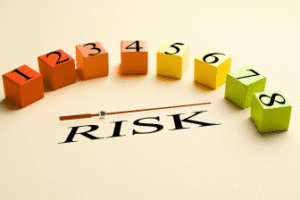
1 year post graduate courses in India | GRM Institute
1 year post graduate diploma courses in India
It is rightly said that no matter how much you learn, the journey of education never truly ends. The pursuit of knowledge is endless, and it is up to you to decide when to pause or continue. This path has no final destination — it expands as you explore more.
In today’s world, competition among highly educated and skilled individuals is rising rapidly. Many people achieve multiple degrees — first graduation, then a master’s, followed by a PhD, and often more.
However, amid this race, it is important to ask yourself: does adding another qualification always make you more productive? Choosing a master’s or the 1 year post graduate diploma courses in India alongside your primary degree can sharpen your skills and enhance your knowledge.
The problem is that many pursue master’s degrees without fully understanding the benefits. In such cases, investing years without a clear objective may not yield the desired results. This is where a post graduate diploma can be especially helpful.
A diploma course, whether for a few months or a year, focuses on practical learning and proficiency. It helps you acquire specific skills that are in demand in the job market. By choosing a diploma aligned with your career goals, you gain applicable knowledge and enhance productivity.
It is essential to balance learning with practical application. This way, you not only gain knowledge but also use it to create meaningful outcomes.
What is a Postgraduate Diploma / PG Diploma?
A Post Graduate Diploma (PG Diploma) is a specialised course for graduates who wish to enhance their skills and knowledge in a specific field. Unlike a traditional master’s degree, a PG Diploma emphasises practical learning, industry trends, and job-oriented training.
When planning your career or further education, it is important to understand the differences between various programmes. Among the popular options are Post Graduate Diplomas (PG Diploma), Master’s degrees, and Certificate courses. Each serves a unique purpose depending on your goals, timeline, and desired expertise.
Difference Between PG Diploma, Master’s Degree and Certificate Courses
- Duration
- PG Diploma: Usually lasts between six months to two years. One-year programmes are common and ideal for quick upskilling.
- Master’s Degree: Typically spans two years, depending on the subject and university requirements. It provides comprehensive study.
- Certificate Course: Shortest duration, often a few weeks to months, suitable for learning a specific skill or topic.
- Eligibility
- PG Diploma: Requires graduation in any discipline. Some courses may ask for relevant experience.
- Master’s Degree: Requires graduation and may demand higher academic qualifications or entrance exams.
- Certificate Course: Open to a wider audience with minimal academic requirements. Focuses on skill acquisition.
- Focus of Study
- PG Diploma: Concentrates on practical, job-oriented learning. Includes projects, case studies, and internships.
- Master’s Degree: Focuses on in-depth theoretical knowledge and research. Prepares for advanced roles or academia.
- Certificate Course: Offers focused training on a specific topic or tool, such as Excel, data analytics, or marketing.
- Cost and Time Commitment
- PG Diploma: More affordable and less time-consuming than a master’s degree. Offers structured learning at a faster pace.
- Master’s Degree: Requires higher investment of time and money but provides thorough academic grounding.
- Certificate Course: Budget-friendly and flexible, allowing learners to pick short programmes fitting their schedule.
- Specialisation and Career Impact
- PG Diploma: Offers specialisation in fields like finance, marketing, HR, or risk management. Helps gain recognised credentials.
- Master’s Degree: Provides a broad, research-based approach. Useful for academic progression and leadership roles.
Certificate Course: Suitable for upgrading specific skills or learning new tools, but may not carry the same weight.
Top Specialisations in PG Diploma Courses
PG Diploma courses offer a wide range of specialisations to suit different career goals. Students can choose fields such as finance, marketing, human resources, technology, healthcare, or risk management. These specialisations help learners gain focused expertise and industry-relevant skills in a short duration.
- PGDM in Marketing Management
This specialisation helps learners understand how businesses engage with customers through advertising, branding, and digital platforms. It trains students to gather market insights and apply them to real-world campaigns. Marketing is essential in every industry, and this course prepares learners to build strategies that attract and retain customers. - PGDM in Hospital and Healthcare Management
Healthcare services require skilled professionals to manage hospitals and other facilities. This course introduces learners to healthcare systems, administrative tasks, and patient care management. It equips students to navigate policies and create efficient workflows in a globally expanding sector.
PGDM in Human Resource Management
Managing people is vital for any organisation. This course focuses on recruitment, training, employee engagement, and conflict resolution. It helps learners develop skills to build a positive work culture while supporting organisational growth. HR practices are universally applicable, making this specialisation highly sought after.
Advantages of Doing a PG Diploma
A PG Diploma is flexible and career-focused. It provides professional knowledge and practical skills, helping learners enhance employability and career growth.
- Career-Focused Learning: Equips students with industry-relevant skills for professional roles.
- Practical Exposure: Projects, case studies, and assignments help apply concepts in real scenarios.
- Time-Efficient: Shorter duration compared to master’s programs, enabling faster skill acquisition.
- Enhanced Employability: Industry-relevant skills make graduates job-ready.
- Specialisation Opportunities: Learners can gain expertise in finance, marketing, HR, technology, or risk management.
- Skill Development: Improves soft skills such as communication, leadership, analytical thinking, and problem-solving.
- Networking Opportunities: Seminars, workshops, and industry interactions help build valuable professional connections.
Conclusion
For those exploring career options in 2025, 1 year postgraduate diploma courses in India offer a perfect blend of speed, skill, and industry readiness. These programmes cater to diverse interests, from finance and marketing to technology and human resources.
However, if you aim for a career in risk management, GRMI’s specialised courses stand out as the top choice. With a curriculum designed for practical learning, industry-recognised certification, and opportunities to collaborate with FRM, GRMI prepares you for roles in high-growth sectors.
Choosing the right programme is crucial for long-term success. GRMI’s 1 year post graduate courses in India are tailored to equip you with the knowledge and skills you need to thrive in today’s competitive job market. Whether you are starting fresh or looking to upskill, GRMI offers the ideal platform to accelerate your career.
Start exploring your options today and set yourself apart with a specialised learning path that leads to real-world impact.
FAQ’s
Q1. Who can pursue a PG Diploma course in India?
Ans. Graduates from any discipline can apply. Some programmes may require relevant work experience or a specific academic background.
Q2. How long does a typical PG Diploma course last?
Ans. Most PG Diploma courses last between 6 months to 1 year, providing focused learning in a short duration.
Q3. What is the difference between a PG Diploma and a Master’s degree?
Ans. A PG Diploma focuses on practical, job-oriented skills, whereas a Master’s degree emphasises in-depth theoretical knowledge and research.
Q4. Can PG Diploma courses improve career prospects?
Ans. Yes. They provide industry-relevant skills, practical exposure, and specialisations that enhance employability and career growth.
Q5. How can I apply for PG Diploma courses at GRMI?
Ans. Applicants can fill out the online form on GRMI’s official website, submit documents, attend a short discussion, and receive enrolment confirmation.
You may also like

Which careers are truly safe from layoffs in 2026?

What Are the 3 Types of Credit Risk?


